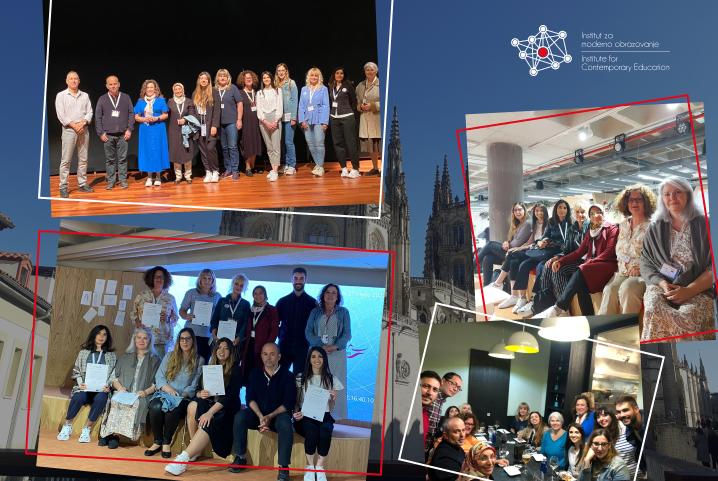 Initial meeting of the Global-Digital Literacy Opposing Big Errors – GLOBE project
Initial meeting of the Global-Digital Literacy Opposing Big Errors – GLOBE project
The past two years have been particularly challenging for the participants of Erasmus projects, given that travel and other activities were banned due to the pandemic, and the point of Erasmus projects is exactly that – meeting people, exchanging experiences, expanding one’s knowledge of other cultures and educational systems, and of course, joint creative work on innovative approaches to teaching, handbooks, curricula, etc.
For the reasons stated above, the spring months this year were filled with events and excitement. All project coordinators sought to make up for the lost time, and organize meetings of project partners. That’s how the first meeting of our new project Global-Digital Literacy Opposing Big Errors – GLOBE was scheduled. The Spanish school from Burgos, Colegio Virgen de la Rosa, as the project coordinator, organized a meeting of all partners from Turkey, Italy, Lithuania and Serbia (representatives of LINKgroup and ITHS).
We spent the official part of the meeting getting to know our host’s school, which comprises preschool, primary and secondary education institutions. Several discussion sessions on the implementation of our project were held at school – we divided tasks, agreed on the dates for different project activities, and clarified some issues concerning the budget.
As the topic of this project is improving digital literacy in critical thinking among teachers and students, we also had a workshop to demonstrate what we are all aware of – that in today’s fast-paced world, it is very difficult to distinguish which of the news that reaches us through various media is true, and which is designed with the intent of deceiving the public. Through a fun activity, we again confirmed how significant this problem is today, and how often even we, experienced adults, fall prey to the lies spread by the media. This only fueled our determination to design training programs and tools through this project that will help our colleagues to improve their skills and use them to encourage students to creative thinking.
We are aware that peer-to-peer knowledge sharing is one of the most successful methods, so we plan to include students into some of the project activities that will be organized in partner countries. The next meeting is scheduled for the next fall and will take place in Italy. It will be an opportunity for our students to attend training related to commercial ads. With the mentoring of their teachers, they will study commercial ads and how they shape the attitudes of young generations, and impact their lives. Once they are convinced of the manipulativeness of marketing activities, they will be empowered to fight it, and share everything they have learned during training with their peers in school. At the same time, this meeting will be the basis for designing training programs for project partners, which will be used for this purpose even after the project.
The unofficial part of the program in Burgos was dedicated to visiting the most famous sights of this lovely town – the cathedral, ruins of the medieval fortress, etc. We also took a walk through town and visited souvenir shops. Certainly the best part of the visit was the time spent with our Spanish hosts, enjoying bocadillos and delicious wine.
We are looking forward to the next meetings, especially because we will have the opportunity to involve students in the project!


 Srpski
Srpski




